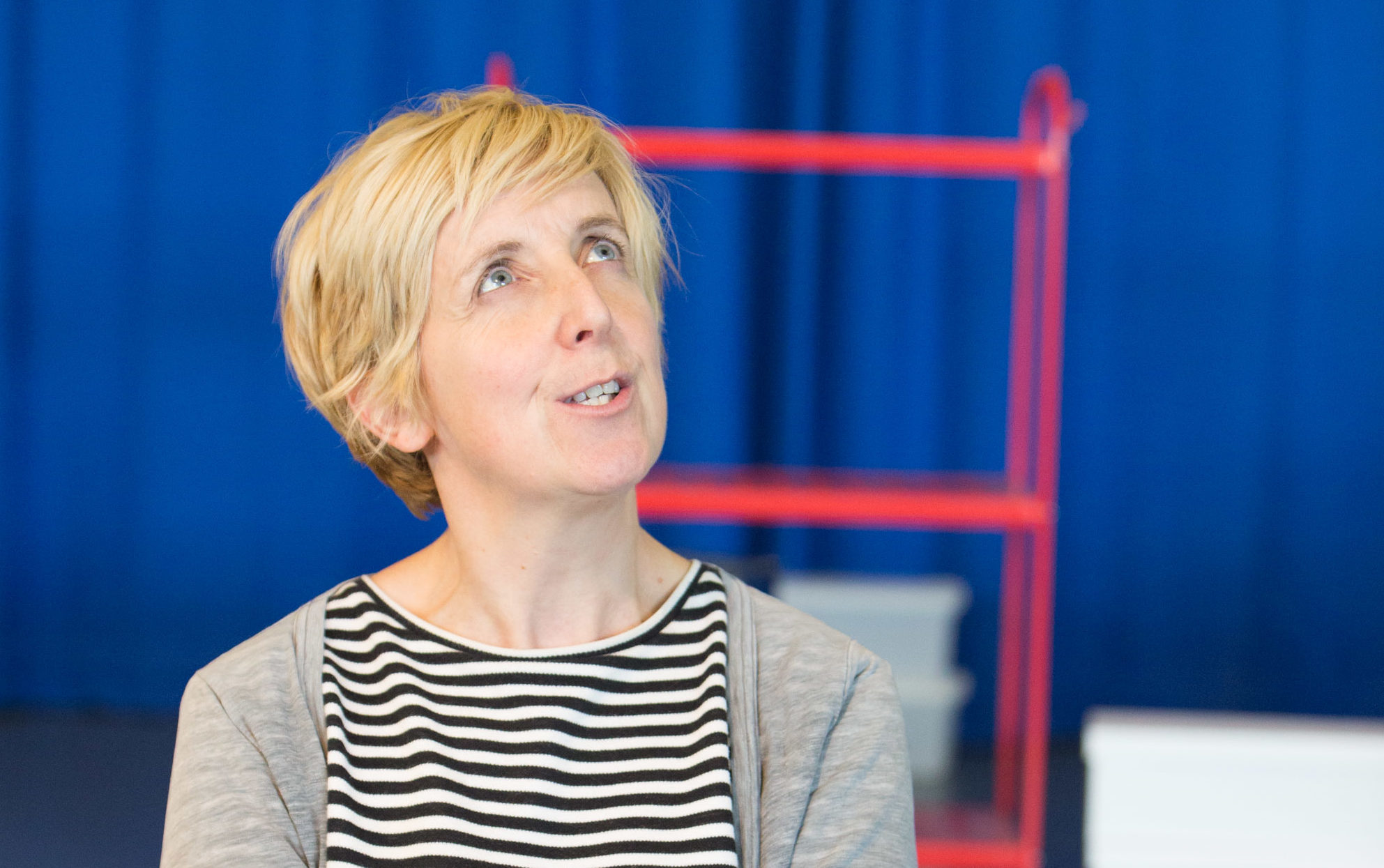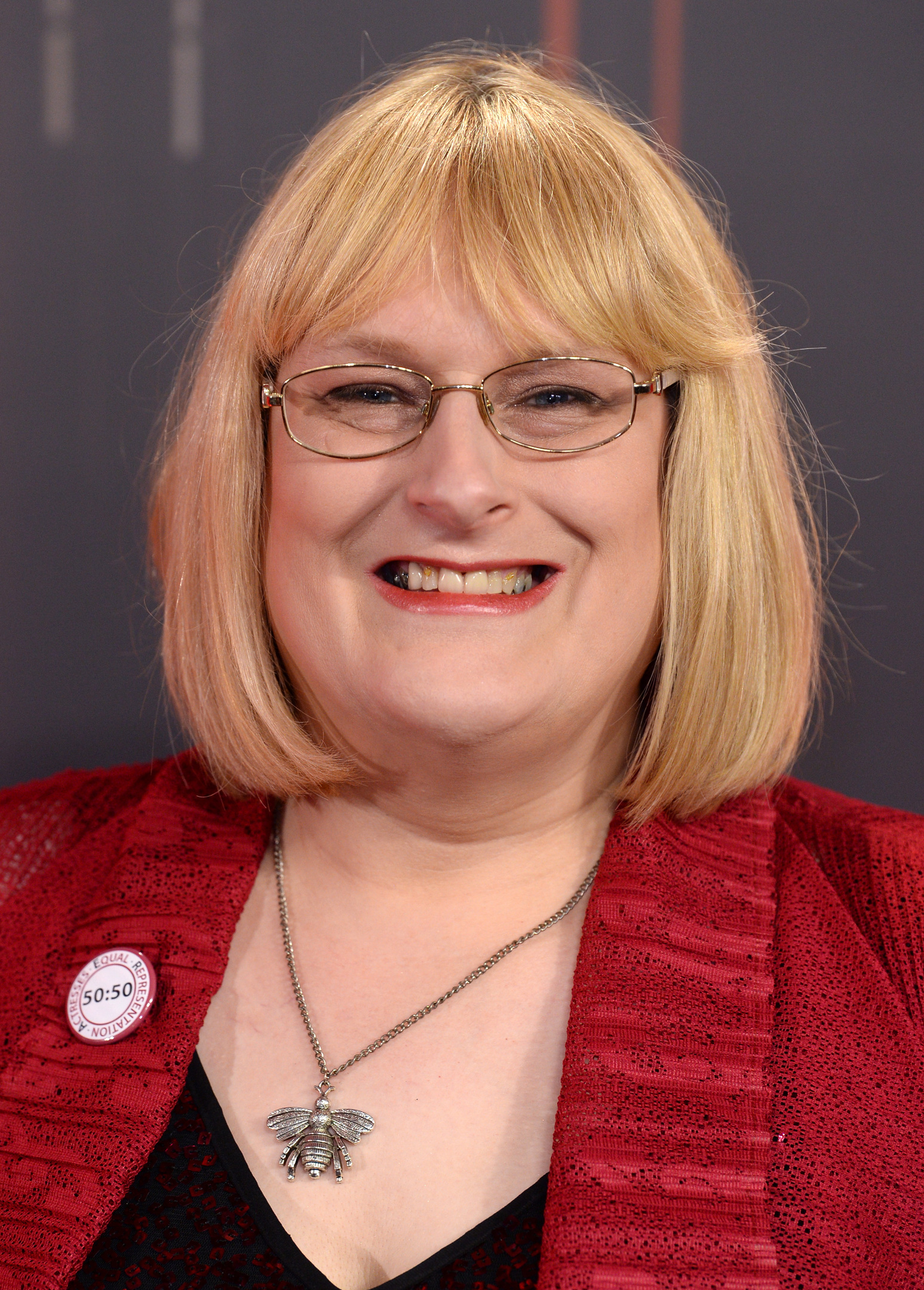
ACTRESS Julie Hesmondhalgh believes she could no longer play the role that made her a Coronation Street favourite…and she could not be happier.
She believes it would be regarded as unacceptable if she was still playing transgender character Hayley Cropper today.
The actress was on the Weatherfield cobbles for 16 years, before departing in a powerful and acclaimed storyline in January 2014.
In her time on the soap, her portrayal of the character helped to change opinions and she also won over the transgender community following initial criticism.
But the 48-year-old says if she’d stayed in the role much longer, the criticism would have been harder to avoid.
“I think I went at exactly the right moment,” she said.
“It was at the point where it was becoming anachronistic – the culture had shifted to it being unacceptable.
“When I joined the show, the culture was much different and I think it would have been unbearable on a trans person to play that character at the time.
“But it’s amazing how much things have changed.
“A lot of trans actors have come to the fore and I think it would have become this thorny subject that I was still playing her.”
Hollywood star Scarlett Johansson received criticism online after it was announced earlier this month that she will portray a transgender man in her new film.
Julie was also in the firing line when she joined the soap’s cast in 1998.
“I did receive some abuse, but it was pre-social media, thankfully,” said Julie, who is mum to two teenage daughters with husband Ian Kershaw, who has written for Corrie, Cold Feet and Shameless.
“Press For Change, the transgender campaign group, put out a statement stating they were unhappy and that the producers hadn’t tried to find a trans actor, but they quickly realised I was an ally and I took the role very seriously.
“When you play a character like that, on a show with so many viewers, there is a responsibility to advocate this community and represent as best you can.”
Julie went on to become patron for Press For Change and also a friend of campaign group Trans Media Watch. She regards herself as lucky to have had so many talking point storylines over the years, not just on Corrie but also in Broadchurch and on stage.
“It makes me proud,” she said.
“We really pushed with the pancreatic cancer storyline and I ended up going down to Parliament with my friend Maggie Watts, who had set up a petition demanding greater awareness of the cancer after her husband died from the illness.
“Ordinary people can engage with these topics in this way more than they would through a documentary or newspaper article.
“It’s not that we want to educate, just start conversations.
“Like in Broadcurch, which started a conversation about the portrayal of rape and sexual assault on TV.
“I thought it was interesting that I was cast as a rape survivor, because usually it is a young girl being pursued through the woods – not an ordinary, middle-aged woman.
“The story was told from the survivor’s point of view and there was lots of talk about whether we should be showing rape on TV at all. It was really exhilarating to be in the middle of it and I met people at organisations like Rape Crisis, those at the coal face who see the hundreds of thousands of people coming through from these attacks.”
Julie was also asked to perform in a play about murdered Sophie Lancaster, a 20-year-old Goth kicked to death by a group of teenagers due to her appearance. It was a turning point in Julie’s career.
“Her mum, Sylvia, asked me to play herself in the production, Black Roses.
“I hadn’t been on stage for years and I was terrified. I took time off from Corrie to do it.
“I had been so content on Corrie but after this experience I was bitten by the bug again. I spoke to a lot of people, including my husband, kids and parents, and without exception they said I should go for it if that’s what I wanted, so I asked to leave Corrie.”
She continued: “People ask if I struggle with all of these tough storylines and if I take them home with me, but I don’t.
“Black Roses was the realisation point for me.
“I would come off stage, having said Sylvia’s words verbatim, how she felt seeing her daughter’s mangled body, and people would kindly ask me how I was and what it must feel like putting myself through that, while meantime the real-life Sylvia was in the foyer selling charity wristbands.
“How bad would it be if I said I was emotionally drained while the real person who’d lived through it was there?
“You don’t honour the people you represent by saying it’s hard being an actor – it’s hard being a rape survivor and a cancer survivor.”
It’s not just on screen and stage that Julie tries to affect change. She is politically active and a Labour member, even speaking at the party’s general election campaign launch last year.
She also hosted a 40,000-strong rally in London last month in support of the NHS.
But she says she could never become a politician.
“I can’t think of anything worse,” she said. “I don’t have a thick enough skin. It would kill me – the abuse, the argy-bargy that politicians have to endure. I wouldn’t cope.
“I’m quite happy doing what I do and continuing to campaign on issues.”
Next month, Julie is coming to the Edinburgh Fringe with a new one-woman show, The Greatest Play In The History Of The World, written by her husband.
It’s her first full run at the world’s biggest arts festival and she can’t wait.
“I had a romantic notion that Ian would write a show for me and we could tour it around the world for the rest of our lives,” she smiled.
“A couple of Christmases ago, he kept disappearing for an hour at a time and he eventually presented me with this lovely thing.
“It’s a beautiful piece, a love story, set in a generic busy road, with the backdrop being the Golden Record that was sent into deep space in the 70s.
“The story is about learning what matters in the end and about leaving a mark on the world.
“I’ve never properly done the Fringe before and I’m thrilled to be involved.
“I hope to go and see one thing each day that I get handed a random leaflet for, but I’m a theatre nerd so I’ll probably see about 10 shows a day.
“I think I might go flyering in the Royal Mile one afternoon, too, as I feel like a bit of a cheat for not doing the Fringe the hard way.
“I want to experience it all.”
The Greatest Play In The History Of The World, Traverse Theatre, Traverse 2, Aug 3-26.
How Julie inspired pride of Hollyoaks
Julie Hesmondhalgh also revealed how her portrayal of Corrie’s popular Hayley Cropper sparked a special friendship.
She said: “Someone in Aberdeen called Annie Wallace wrote to the Radio Times and then to the show, saying she felt she was like me and she became an unofficial researcher for the character.
“We became great friends and remain close to this day.
“Eventually she moved to Manchester, went to drama school and on her 50th birthday revealed to her friends and agent that she was trans.
“A week later, she got an audition for Hollyoaks, and now she plays the school headmistress Sally St Claire.”
Annie was nominated for a Scottish Bafta for the role – the first British transgender actress to be nominated at the awards – and also won Celebrity of the Year at the National Diversity Awards in 2016.
Julie added: “I was able to advise her about being in the public eye and about being careful about what you write on Twitter, because she won’t mind me saying she was pretty gobby!”
Annie has said it was the storyline that led to Hayley’s death in Corrie that inspired her to pursue acting.
“I was Julie’s voluntary adviser and it was Hayley’s death last year that was the final push I needed to come out as a transgender actor.”

Enjoy the convenience of having The Sunday Post delivered as a digital ePaper straight to your smartphone, tablet or computer.
Subscribe for only £5.49 a month and enjoy all the benefits of the printed paper as a digital replica.
Subscribe

